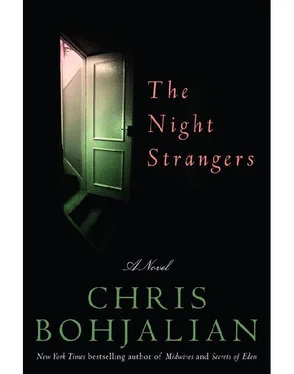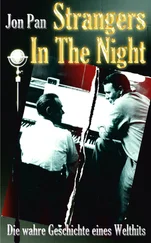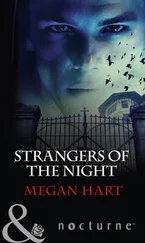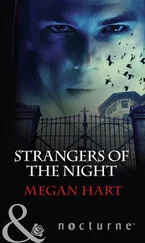Chris Bohjalian - The Night Strangers
Здесь есть возможность читать онлайн «Chris Bohjalian - The Night Strangers» весь текст электронной книги совершенно бесплатно (целиком полную версию без сокращений). В некоторых случаях можно слушать аудио, скачать через торрент в формате fb2 и присутствует краткое содержание. Жанр: Триллер, на английском языке. Описание произведения, (предисловие) а так же отзывы посетителей доступны на портале библиотеки ЛибКат.
- Название:The Night Strangers
- Автор:
- Жанр:
- Год:неизвестен
- ISBN:нет данных
- Рейтинг книги:5 / 5. Голосов: 1
-
Избранное:Добавить в избранное
- Отзывы:
-
Ваша оценка:
- 100
- 1
- 2
- 3
- 4
- 5
The Night Strangers: краткое содержание, описание и аннотация
Предлагаем к чтению аннотацию, описание, краткое содержание или предисловие (зависит от того, что написал сам автор книги «The Night Strangers»). Если вы не нашли необходимую информацию о книге — напишите в комментариях, мы постараемся отыскать её.
The Night Strangers — читать онлайн бесплатно полную книгу (весь текст) целиком
Ниже представлен текст книги, разбитый по страницам. Система сохранения места последней прочитанной страницы, позволяет с удобством читать онлайн бесплатно книгу «The Night Strangers», без необходимости каждый раз заново искать на чём Вы остановились. Поставьте закладку, и сможете в любой момент перейти на страницу, на которой закончили чтение.
Интервал:
Закладка:
“A little bit. I knew Sawyer and Hewitt Dunmore. It’s an interesting place, isn’t it?”
“Can I ask you a question?” Chip said.
“Absolutely,” answered this friend of their real estate agent.
“In the basement is a door. I noticed it the day before yesterday when I was bringing a load of laundry down there.”
“Okay,” she said, shrugging. “Where does it go?”
“I don’t know. I was hoping you might.”
“Nope.”
“It’s sealed shut.”
“Sealed?”
“With bolts. Lots and lots of carriage bolts.”
“That’s interesting. Based on the design of the house, where do you think it goes? Back up to the kitchen, I’d wager. I know the house has a back stairway linking the first and second floors. Why not one linking the basement with the kitchen?”
“Not likely. The kitchen would be above the other side of the basement. It seems to be a door to nothing. It’s at the edge of the house. All that’s above it is the screened porch. And that porch is just built above dirt.”
“I’ll bet it was a ramp, in that case. A wheelbarrow ramp.”
“There’s one of those on the other side of the basement-on the north side of the house.”
“Maybe it’s a coal chute then.”
“There is some old coal lying around it,” he admitted.
“There you go, mystery solved. The Dunmores-or the Pierces before them-probably built that screened porch after they stopped heating with coal.”
He nodded, but Emily knew that her husband wasn’t entirely convinced. The two of them had discussed the likelihood that it was merely a coal chute the afternoon he first noticed it. Certainly it was possible that’s all it was. But why would you use thirty-nine carriage bolts to seal it shut? (Emily feared the coincidence that there were the same number of bolts as there were fatalities on Flight 1611 was only going to exacerbate her husband’s fixation on the door.) Chip had removed one of the bolts, but it had taken an awl with a beveled point, a screwdriver, and a hammer-and nearly twenty-five minutes of struggling. It was six inches long. When he realized that the remaining thirty-eight were probably identical and might demand the same labor-kneeling in dirt and moldy, crumbling coal-he twisted the carriage bolt back into place and returned upstairs to unpack some more boxes. Over cups of decaffeinated coffee late that night, sitting on the floor in the den because here was one room where the wallpaper was a soothing pattern of blue and yellow iris, he and Emily discussed calling Hewitt Dunmore to ask about the strange door. But when Emily had phoned Hewitt yesterday about the possessions they’d come across in the house, everything from that extraordinary sewing machine to those eccentric figurines, she had found herself incapable of asking him about it-or, for that matter, about the crowbar, the knife, and the ax. He seemed too damn ornery. Besides, it was just a door to a coal chute, wasn’t it? She decided another time, perhaps.
“Yeah, that’s what we figured,” Chip said finally. “A coal chute.”
“What else could it be?” Anise agreed, and she raised her eyebrows and smiled once more. “It’s not like the Dunmores hid bodies down there.”
No, of course not, Emily thought.
“It must feel wonderful to be here,” Anise continued.
“It’s nice,” Emily agreed, carefully modulating her tone. Nothing in her life felt particularly wonderful right now. Besides, she hadn’t been here long enough to have any sense at all of whether moving to Bethel had been the right decision.
“Are you going to garden?”
“I don’t know.”
“Did you garden in Pennsylvania?”
“Not really.”
Anise motioned at the greenhouse. “You’ll want to take advantage of that. Tansy did for a while. Then she stopped. She shouldn’t have.”
Emily thought about this. “I presume you’re a gardener,” she said finally. “You said you have a greenhouse.”
“We’re all gardeners,” Anise answered, and there was something in the tone that was oddly salacious. A moment later, the woman was climbing into her battered pickup and Emily was carrying the lentil-nut loaf and four carob-chip brownies with their names on them into the kitchen and calling for the girls. Chip remained outside by their car, staring up into the sky and, she presumed, watching for birds or the white trail of a jet high overhead.
Y ou do watch for birds. You do stare at the plumes of the jets high overhead. You will, you know, never fly again. Not as a pilot and not as a passenger. Never.
You have confessed only to your psychiatrist in Philadelphia that, suddenly, you are afraid of flying. As well, you discussed with her at length what physicians have determined are the psychosomatic or phantom pains in your neck and your back and your head: the lingering whiplash. The occasional daggerlike spikes in your left kidney and abdomen, a sensation you have likened to a horizontal barb impaling you through your back and your stomach. The way your skull sometimes feels as if the frontal bone-that great helmet beneath your skin-has been crushed, smashed into the brain in one moment of life-ending trauma.
She told you they would pass. Eventually.
Instead they have gotten worse this week since you arrived in New Hampshire. You tell yourself it is because of the work of moving your family from one house to another. All that lifting. All that stress. It was bound to aggravate whatever is going on in your back and your neck and your head. Your mind.
Moreover, the dreams seem to be changing here. Oh, you still have the dreams where you crash CRJs in catastrophic, steel-melting infernos-though, of course, you always wake a split second before impact. You still have the nightmares with dense tropical forests filled with palm trees and oxygen masks dangling like strange, tubular plants.
But last night there was a dream with a little girl, not either of your daughters. She was sopping wet, drowned-dead, you knew it even in your sleep-but she didn’t know she was dead and she was nattering on and on about her backpack, which she wanted you to help her find. This was new. So was the dream on Thursday night with some burly guy your age who was standing behind you and Amy, your now dead first officer, on the flight deck of the CRJ as you were about to start down Burlington’s runway 33 for the last time. He was telling you to wait, wait, wait-to goddamn it, wait!-because if you waited just a couple of seconds you wouldn’t hit the goddamn birds. But you ignored him and started your roll, turning around to command him to take his seat in the passenger cabin, noticing for the first time when you turned that he, too, was dead and hadn’t a clue: A round metal shard had pierced his skull like a long spike of rebar, and another was protruding from just beneath his rib cage. Only in a dream could he stand.
Soon enough, the nightmare ended as they all do: a fireball occurring just as you open your eyes and stare up at the diaphanous shadows of your bedroom at night.
O ne time, if only to change the dynamic with your psychiatrist in Philadelphia, you told her about a broad broad brought abroad. A joke at your mother’s expense when you were in the fifth grade. Your mother was terrified of flying. Absolutely petrified. Had to be hammered to get on an airplane. Had to have her good-luck charm bracelet on her wrist and her Saint Christopher’s medal around her neck. Had to be wearing a specific pair of sunglasses as a headband to keep that long and lustrous black hair off her face. Tony Swoboda and his wife, Kaye, were driving you and your family from Stamford to Kennedy Airport the time you all flew to Spain and Portugal on a two-week tour. One of those vacation packages that took you to a half dozen cities in barely a dozen days: Madrid in two days and Lisbon in thirty-six hours. An afternoon for Toledo. It was your last vacation as a family-you and your parents and your younger brother-because it would be soon after your return that your father would start up the grand staircase at Grand Central Terminal around 8:35 on a Tuesday morning and die right there on the steps of a ruptured cerebral aneurysm. (His last conscious vision? You like to believe it was Paul Helleu’s Mediterranean sky, but at the time the ceiling had not yet been restored. The stars that day had still been obscured by soot.) He was walking from the train station to his office at the ad agency on Forty-eighth Street, as he had almost every workday of his life for twenty years. It was the end for him, but only the beginning of the end for your mother. Somehow, her husband’s life insurance had lapsed and their savings and investments were clearly inadequate to keep her and her two sons in a four-bedroom house near the water in Greenwich, Connecticut. They would cut back, then they would move. A smaller house in Stamford, at the edge of the city. It wouldn’t have been so bad for the three of them if the combination of widowhood and diminished resources hadn’t conspired to turn a social drinker (a very social drinker, in hindsight) into a drunk.
Читать дальшеИнтервал:
Закладка:
Похожие книги на «The Night Strangers»
Представляем Вашему вниманию похожие книги на «The Night Strangers» списком для выбора. Мы отобрали схожую по названию и смыслу литературу в надежде предоставить читателям больше вариантов отыскать новые, интересные, ещё непрочитанные произведения.
Обсуждение, отзывы о книге «The Night Strangers» и просто собственные мнения читателей. Оставьте ваши комментарии, напишите, что Вы думаете о произведении, его смысле или главных героях. Укажите что конкретно понравилось, а что нет, и почему Вы так считаете.











